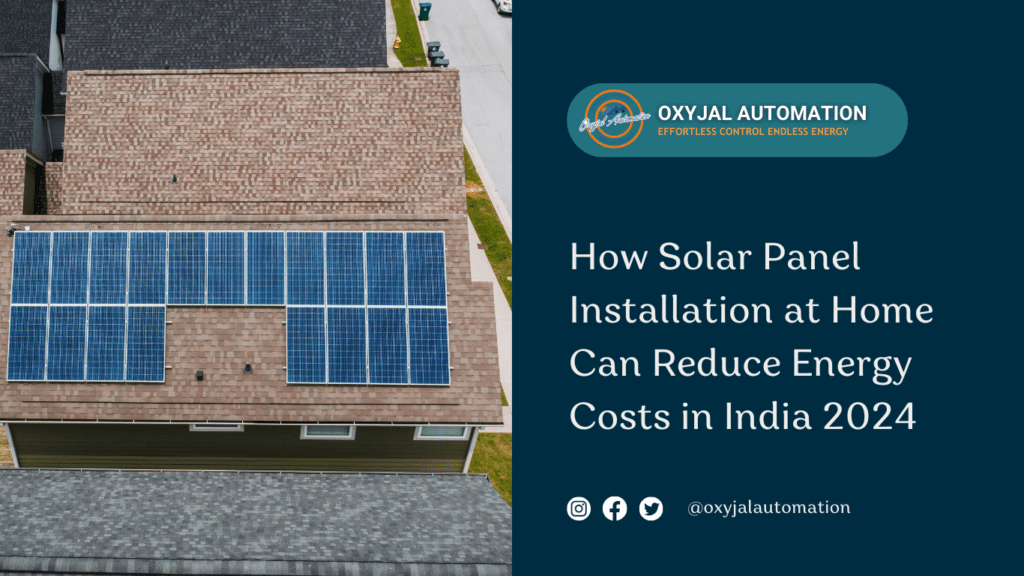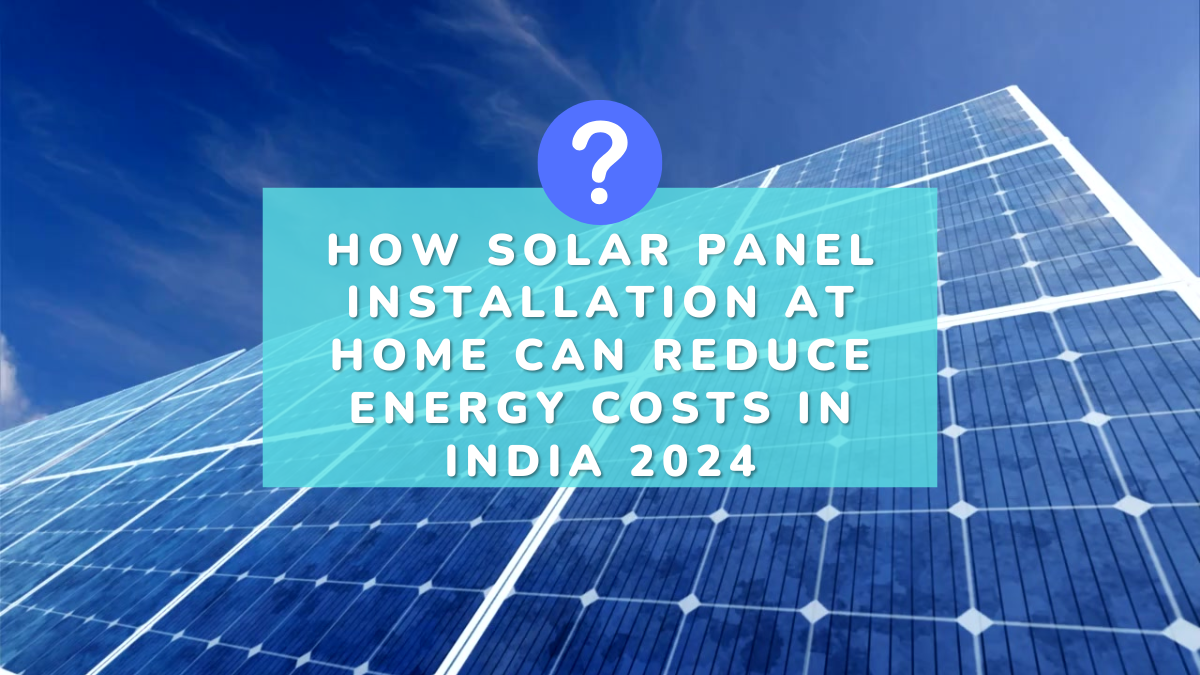Solar Panel Installation in Indian homes
In India, where electricity demand continues to rise, homeowners are exploring sustainable solutions to reduce their energy bills. One of the most effective options is solar panel installation at home. Not only does this eco-friendly technology help slash energy costs, but it also contributes to reducing one’s carbon footprint. Let’s dive into how installing solar panels can revolutionize one’s energy consumption in 2024.

Understanding Solar Panel Installation at Home
Solar panel installation involves setting up photovoltaic (PV) panels that capture sunlight and convert it into electricity. These panels are typically mounted on rooftops to maximize exposure to sunlight. The generated power can be used to run household appliances, lighting, and more.
In India, solar energy adoption has grown significantly due to government incentives like subsidies, net metering, and tax benefits. This makes solar panel installation at home an even more attractive option for homeowners.
Major Benefits of Solar Panel Installation at Home

a) Reduced Energy Costs
One of the primary reasons homeowners opt for solar panels is the potential to cut down electricity bills. With solar panels, a significant portion of your energy needs can be met without relying on the grid.
For instance, if your monthly electricity bill averages ₹3,000, installing a solar panel system could save you up to 70% on energy costs, depending on your usage and panel efficiency.
b) Government Incentives and Subsidies
The Indian government provides various incentives for installing solar panels, such as capital subsidies and tax benefits under Section 80-IA of the Income Tax Act. Net metering also allows you to sell surplus energy back to the grid, reducing your energy costs.
c) Energy Independence
By generating your electricity, you’re less dependent on the grid and less affected by rising electricity rates. This type of energy is particularly valuable in areas with frequent power outages.
d) Environmentally Friendly**
Solar energy is a renewable and clean source of power. By choosing solar panel installation at home, you’re contributing to reducing greenhouse gas emissions and promoting a sustainable future.
Costs of Solar Panel Installation at Home in 2024

The cost of installing solar panels in India has dropped significantly over the years. On average, a 1 kW system costs between ₹45,000 to ₹70,000, depending on the brand and quality. Factors Affecting Costs:
- Size of the solar system
- Type of solar panels (monocrystalline or polycrystalline)
- Installation charges
- Battery storage (if required)
While the initial investment might seem high, the payback period is typically 5–7 years, after which you enjoy free electricity for the lifespan of the panels, which can exceed 20 years.
Choosing the Right Solar System for Your Home
When opting for solar panel installation at home, it’s crucial to select the right system based on your energy needs. Here are a few considerations:
a) On-Grid Systems
These are connected to the main power grid and are ideal for areas with reliable electricity. They allow for net metering, enabling you to earn credits for excess energy generated.
b) Off-Grid Systems
These are self-sustained systems with battery storage. They are suitable for areas with frequent power outages or no grid access.
c) Hybrid Systems
These systems combine the features of on-grid and off-grid setups, offering both grid connection and battery backup.
Tips for Maximizing Solar Savings
- Conduct an Energy Audit: Understand your energy usage patterns to determine the size of the solar system you need.
- Optimize Panel Placement: Ensure panels are installed in areas with maximum sunlight exposure, typically south-facing rooftops.
- Maintain Your Solar System: Regular cleaning and maintenance can boost panel efficiency by up to 20%.
Real-Life Impact: Case Study

Let’s consider a family in Delhi that installed a 5 kW solar panel system in early 2023. They reported a 60% reduction in electricity bills within the first six months. By 2024, the family expects to recover nearly half of their initial investment through savings and net metering benefits.
This highlights how solar panel installation at home can deliver tangible financial benefits while supporting green energy initiatives.
The Future of Solar Energy in India
With the government’s push for renewable energy and advancements in solar technology, 2024 is a prime time to invest in solar panel installation at home. India’s ambitious target of achieving 280 GW of installed solar capacity by 2030 ensures ongoing support for solar adoption, making it a wise and sustainable choice for homeowners.
Conclusion
Installing solar panels at home is not just an investment in your property but also in a sustainable future. With significant reductions in energy costs, government incentives, and environmental benefits, solar panel installation at home is a smart decision for 2024.
Take the first step towards energy independence today and reap the rewards for years to come. Whether you’re motivated by financial savings or environmental impact, solar energy offers a win-win solution for every homeowner in India.

